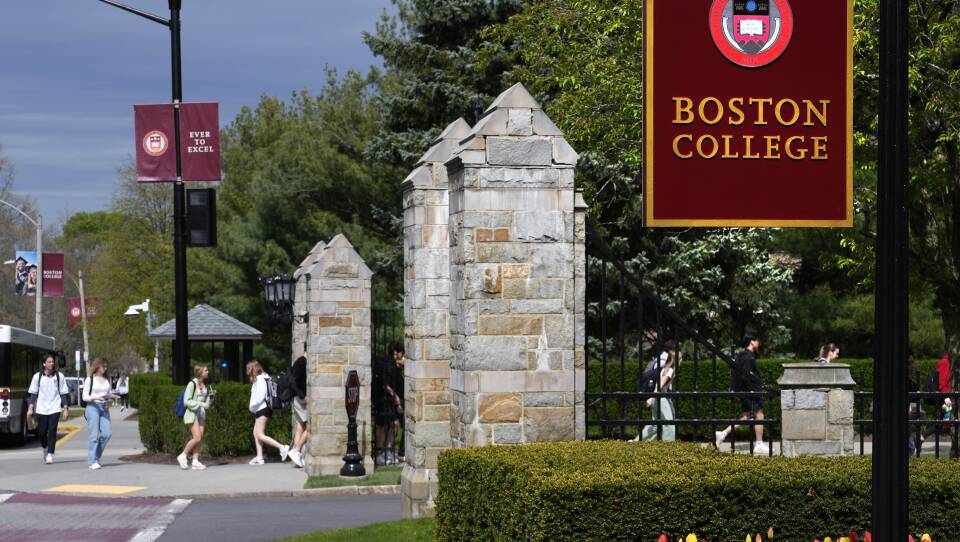With the recently announced departure of longtime Boston College president William P. Leahy, the 161-year-old institution sits at a crossroads: Should the college name another Jesuit priest or brother as president, or instead look to name its first layperson as leader, as peer institutions like Holy Cross, Georgetown, Fairfield and Fordham have all done?
“I don’t think we’d have any problem in the world welcoming a lay president,” said Boston College theology professor Thomas Groome.
Leahy, who has served as president for nearly three decades and is the longest serving university president in BC’s history, announced in June that he will step down in the summer of 2026.
“For the next two years, I intend to keep working as always on advancing BC, especially through our fundraising campaign,” Leahy said in a statement.
In a message to the campus community, BC’s Board of Trustees Chair John Fish pledged to identify another Jesuit as its next leader.
“To fulfill our responsibilities as trustees, the Executive Committee believes that we need to do all we can to identify, recruit, and name a qualified Jesuit as BC’s next president, one who will advance the University’s distinctive mission and heritage,” he said in the statement.
Boston College’s theology department is known for training Jesuits, so some sources told GBH News they believe the university is likely to name another Jesuit.
Only four of the country’s 27 Jesuit colleges and universities are still led by Jesuits, including Boston College, Creighton University, the University of Scranton and the University of San Francisco.
Georgetown University was the first Jesuit school to switch to a lay president. Jack DeGioia began his tenure in 2001 and is still leading the university in Washington today. More universities followed suit during the pandemic, according to the Association of Jesuit Colleges and Universities.
A source familiar with the search for presidents at Jesuit colleges, but who didn’t want to comment publicly on another college’s search, attributed the trend to “a declining number of Jesuits as they’ve aged and haven’t replenished.” Another reason cited is that lay leadership can animate a school’s mission differently because they tend to have spouses and children.
Over the past 28 years, Leahy, who often avoids media interviews, elevated the Jesuit institution academically and financially, expanding programs and renovating buildings and dorms.
Some LGBTQ+ advocacy groups on campus have criticized Leahy for not leading the charge on same-sex marriage within the church. Following the announcement last month, BC Equality shared an image in Instagram in bold red letters that said, “FINALLY!!!”
The Thea Bowman Intercultural Center on campus, which supports the undergraduate community “with a particular focus on students of color, LGBTQ+, and historically marginalized students” referred all requests for comment to the college’s public relations office.
A BC spokesperson did not respond immediately.
About two decades ago, Leahy publicly opposed same-sex marriage. Advocacy groups on campus point out that he has never changed his position, even as public opinion has shifted dramatically and the U.S. Supreme Court nine years ago this month ruled that same-sex couples, no matter where they live, have the same legal right to marry as different-sex couples. Earlier this year, Pope Francis defended a decision approving blessings for same-sex couples.
Groome said gay marriage is always a complicated issue for the church, and especially for the leadership of a Catholic university like BC.
“It can’t get too far ahead of the official church,” Groome said. “I know that Father Leahy personally has deep respect for LGBTQ people. On the other hand, he wouldn’t lead the charge for gay marriage, but I’m sure he’d be in favor of blessing gay unions.”
The search for Leahy’s successor will officially begin this fall, and a spokesperson had said the board of trustees hopes to complete it by early 2025.





